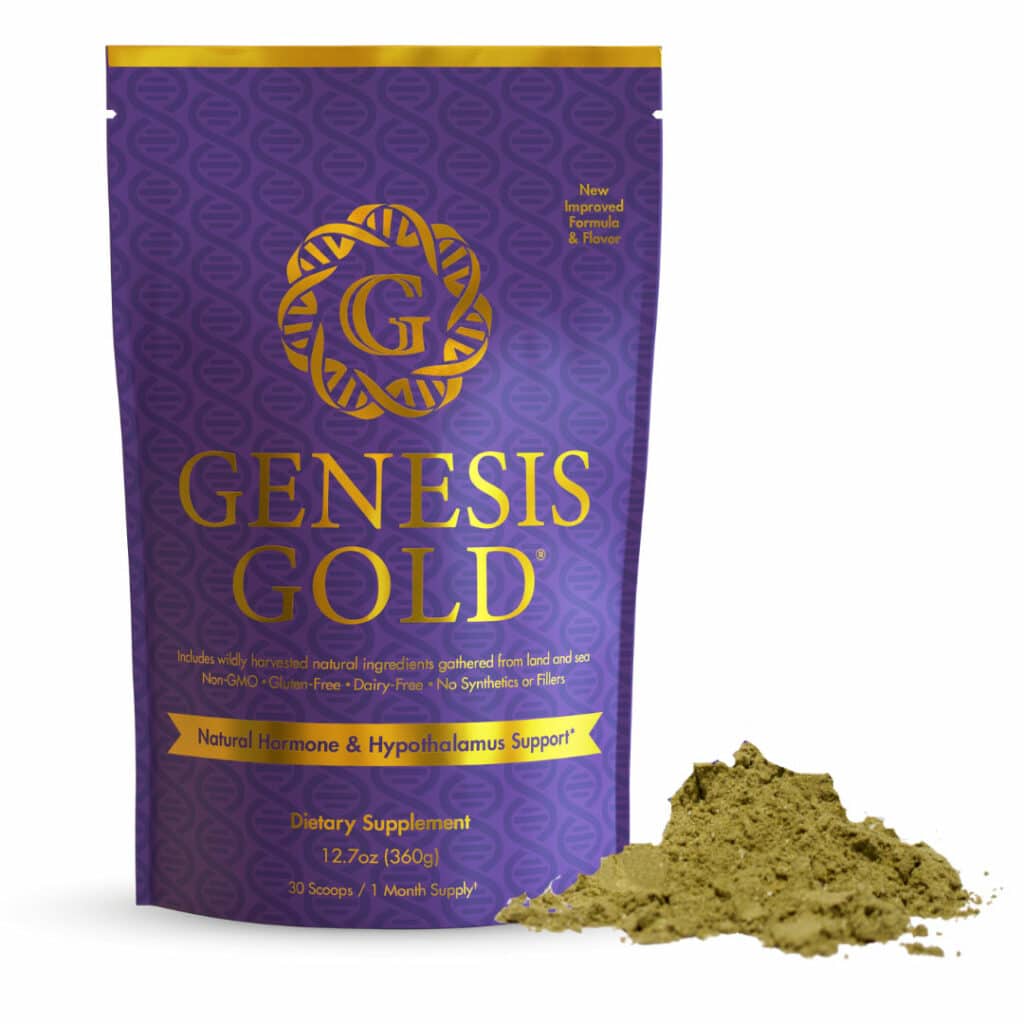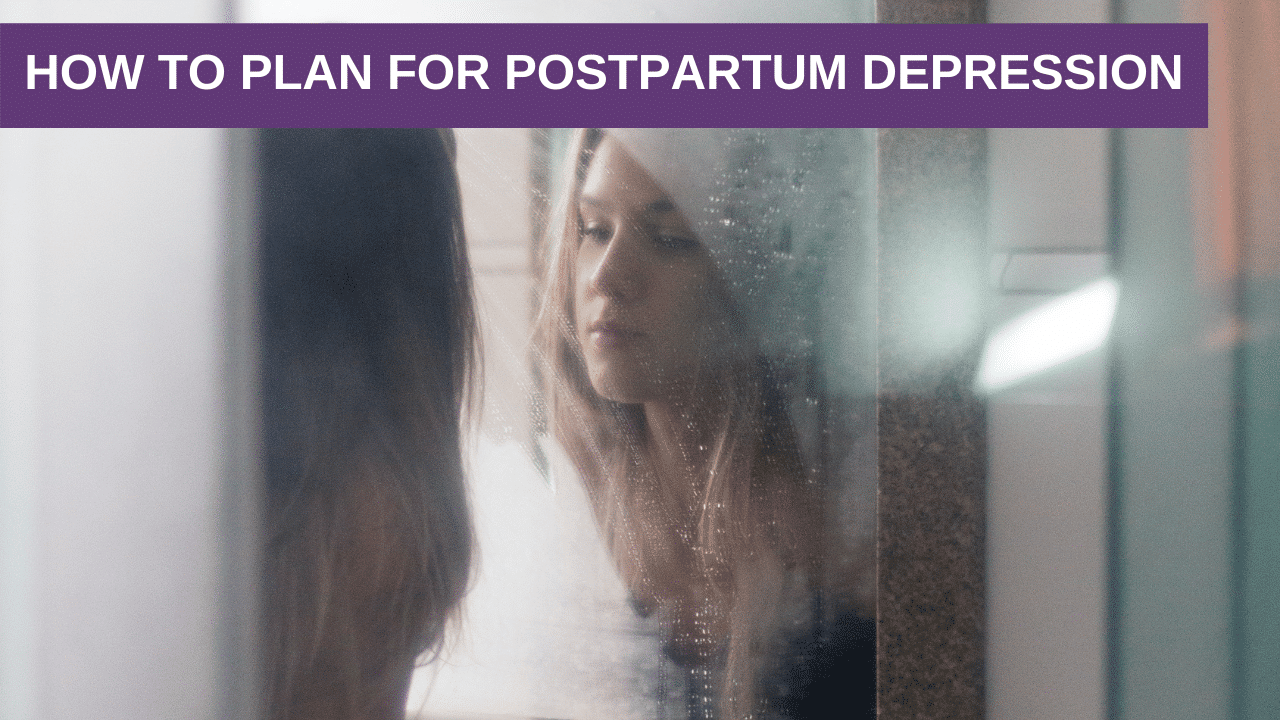Postpartum depression is a very difficult thing. Postpartum depression or PPD affects one out of five mothers. Sometimes PPD is called the baby blues. PPD can be incredibly damaging for the mother’s psyche, as well as her relationships, not to mention the difficulty she has taking care of her baby. It’s really important to know what postpartum depression is and to get it treated as early as possible. Most of the time, PPD is missed.
When you’re pregnant, your estrogen levels are very high which helps fuel your pregnancy. Of course, your other hormones like progesterone and prolactin are high, but it’s estrogen that is affecting your brain. Estrogen helps your brain create serotonin, which is the happy neurotransmitter. Most women feel elated in pregnancy due to estrogen. But when you give birth, your estrogen levels plummet. By day nine, your estrogen levels are so low that if you do not have enough support in terms of the rest of your hormones, your lifestyle, your natural brain chemistry, then might experience postpartum depression.
If you have postpartum depression, you are incredibly overwhelmed by taking care of a new baby. You’re getting anxious, you feel depressed, you’re crying all the time, everything frustrates you. Although you’re exhausted, you have trouble sleeping. Being depressed is overwhelming but now you have a newborn to take care of. If you’re breast-feeding, your PPD complicates everything because your depressed energy and anxiety transmits to your baby. An irritable baby can make you feel more anxious.
Here are a few things that you can do to help with your postpartum depression – both to prevent it and to treat it.
Get Help
First, you need help. It takes a village to raise a child but more so it takes a clan of women to help you with your newborn. It is not enough for you to just have your partner with you. You need more help than that. In aboriginal cultures and in our not too far past, women had multiple women around us. We had midwives, we had doulas, we had our aunts, we had our sisters, we had our mothers, we had women from the village, women in the neighborhood and they would help us with our newborns. They would cook, they would clean, they would help us with breastfeeding issues, diapering issues, answer our new mother concerns and keep our spirits up. Plus they would hold our baby so we could get some sleep.
Now, if you do not get enough help, you are going to experience overwhelm. So organizing help before the baby is born is crucial to help to prevent postpartum depression and absolutely, if there are any signs of postpartum depression, then you want to get help as soon as possible. And I am talking about getting the women there. Now you also need to get help in terms of contacting your healthcare provider. You need to get your lactation expert there. Professional help is important but gathering your supportive clan of women is crucial to your postpartum wellbeing.
Get Sleep to Make Serotonin
You need sleep. If you do not get enough sleep, you will not make enough melatonin. that will become serotonin during the day. Now it is difficult to get enough sleep when you are breast-feeding a baby around the clock. A newborn needs to eat every two to three hours. So you need to have help in order for you to get enough sleep. When the baby is sleeping, you need to sleep. Even if it’s in the middle of the day, even if you have dishes to do and laundry to do. That’s why you have the other women there to help you out. You need help to get enough rest to prevent and reverse postpartum depression. So sleep when your baby is sleeping.
Get Estrogen +B Vitamins
If you develop postpartum depression, and especially if it’s diagnosed early, around day nine, you can be prescribed estrogen. I recommend low dose sublingual estradiol (underneath the tongue). Plus extra B 12 either by injection or sublingually. Orally works too but sublingual and injection get in much faster. When both estradiol and B12 are prescribed early enough, postpartum depression can resolve. Plus if you have a history of PPD with another pregnancy, then estradiol,and B12 can help prevent PPD. Now some women are a little concerned that if they take estrogen, it will affect their breast milk production. At low doses it will not affect milk production, but you cannot take it until your milk is in around day 2-4 after delivery. I’ve been advising the use of estrogen and B12 for postpartum depression for 25 years and it works every single time. You just need to get it prescribed by your provider by day nine. That’s why it’s super important to know the early postpartum depression symptoms.
Teary, anxious, unable to sleep, irritable, not bonding with the baby. Sometimes, trouble having your milk come in can actually be a sign and can make you even more depressed. If you suffer from postpartum depression when you are young, you are much more likely to have menopausal depression later so please alert your healthcare providers so that they know that you need to get treatment. You’ll probably need bioidentical hormones if you can take them, as soon as possible going into perimenopause and menopause.
Support your Hypothalamus
The key to preventing postpartum depression is a healthy balanced hypothalamus. Your hypothalamus controls your moods by directing serotonin, dopamine and norepinephrine pathways.
Studies show that women with PPD have alterations in their HPA axis – the communication between your hypothalamus, pituitary gland, and adrenals. Your HPA axis controls your stress response. Having a baby can be very stressful, so your HOA axis is naturally affected. People with depression have shrinkage of their hypothalamus- particularly in the part of the hypothalamus that controls your adrenals.
Studies have shown that women who experienced childhood sexual abuse are more likely to suffer from postpartum depression. Their hypothalamus-pituitary-thyroid axis is affected contributing to autoimmune thyroiditis. Low thyroid function affects brain function and moods. The active thyroid hormone T3 is crucial to proper neurotransmitter activity.
My patients who have used Genesis Gold® to conceive and continue to take it throughout their postpartum period rarely experience PPD. Supporting your hypothalamus can help keep your neurotransmitters stable through birth and into the postpartum period.
Now that you know what you need to do to prevent and to treat postpartum depression, you also know that it is just not easy if the rest of your hormones are out of balance. That is why I created Genesis Gold® to help keep your Hormones in Harmony®.

Research Reference: Dysregulation of the Hypothalamic-Pituitary- Adrenal Axis in Postpartum Depression, Childhood sexual abuse and hypothalamus-pituitary-thyroid axis in postpartum major depression, Hypothalamus regulation of sleep *Statements not reviewed by the FDA.



Is it okay to take Genesis Gold during pregnancy. I see in several areas you mentioned that some women took it you have better outcomes with pregnancy.
Many women have safely taken Genesis Gold throughout their pregnancy and lactation.
These women have had healthy pregnancies with less gestational diabetes, preeclampsia and fetal development issues as compared to their former pregnancies.
Of course discuss all supplements with your midwife or OB-gyn
As per ACOG recommendations, you will still need extra folic acid and I also recommend vitamin D dosed according to your serum levels and fish oil for DHA for healthy fetal brain development.
thank you!